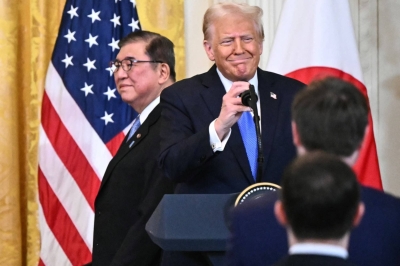Democratic Party of Japan (DPJ) president Ichiro Ozawa's success in orchestrating the downfall of Prime Minister Abe Shinzo is a major victory for his party. It is also arguably the first time since the resignation of Abe's grandfather, Prime Minister Kishi Nobusuke in 1960, that a prime minister has lost his job over an issue directly related to the U.S.-Japan alliance — perhaps the take-home impression of policymakers in Washington.
But greater power and influence go hand in hand with greater responsibility. As long as Ozawa continues to consolidate power and alter government policies, he must be clearer about where exactly he stands on security relations with the United States, lest he send the wrong signals about Japan's commitment to the bilateral alliance.
After the DPJ's defeat of the Liberal Democratic Party (LDP) in the July 29 Upper House elections, Ozawa announced plans to oppose passage of the antiterror law, which provides the legal basis for Japan Maritime Self-Defense Force refueling operations for U.S.-led coalition vessels in the Indian Ocean.


















With your current subscription plan you can comment on stories. However, before writing your first comment, please create a display name in the Profile section of your subscriber account page.